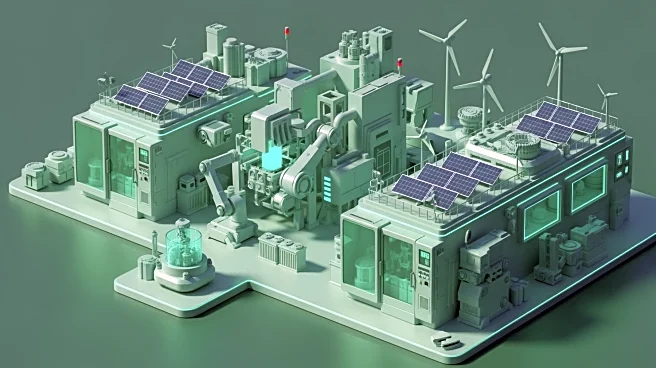What's Happening?
BloombergNEF's report highlights the challenges faced by global cleantech manufacturing due to rising trade barriers and costs. Developed and emerging economies are expanding clean energy deployment while
aiming to enhance domestic manufacturing of key technologies. China dominates the manufacturing capacity for solar and battery supply chains, while other countries are implementing higher import duties to foster local value creation and address energy security concerns. G20 countries have allocated $250 billion in subsidies for clean technology manufacturing.
Why It's Important?
The global energy transition is crucial for achieving climate goals, but rising trade barriers and costs pose challenges for cleantech manufacturing. As countries seek to enhance domestic production, they face economic and policy hurdles that may impact the pace of the transition. The dominance of China in cleantech manufacturing highlights the need for diversification and collaboration to ensure a sustainable and resilient energy future.
What's Next?
Countries are likely to continue implementing policies to support domestic cleantech manufacturing, potentially leading to shifts in global trade dynamics. The focus on sustainability and energy security may drive further investments in clean technology and infrastructure. Stakeholders, including governments and businesses, will need to address challenges related to trade barriers and supply chain management in their strategies.
Beyond the Headlines
The global tug-of-war over cleantech manufacturing reflects broader economic and geopolitical trends, as countries prioritize energy security and sustainability. The emphasis on domestic production highlights the need for collaboration and innovation in addressing global energy challenges. The integration of sustainable practices in manufacturing processes may lead to long-term shifts in industry standards and consumer expectations.









